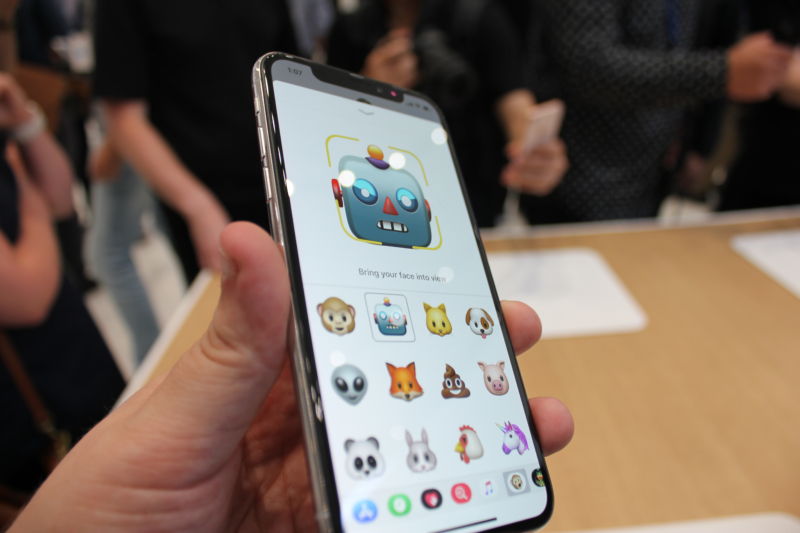
Today, Apple announced a big investment in the technology manufacturing company Finisar. The iPhone maker will give Finisar $390 million, a portion of its $1 billion Advanced Manufacturing Fund, to help "support innovation and job creation by American manufacturers." According to Apple's statement, the investment will allow Finisar to build a new 700,000 square foot plant in Texas, hire 500 workers, and make more vertical-cavity surface-emitting lasers (VCSELs). These lasers are a component in Apple's TrueDepth cameras, now being used in the iPhone X for features including FaceID and Animoji.
“VCSELs power some of the most sophisticated technology we’ve ever developed and we’re thrilled to partner with Finisar over the next several years to push the boundaries of VCSEL technology and the applications they enable,” Jeff Williams, Apple’s chief operating officer, said in a statement.
Apple's Advanced Manufacturing Fund is meant to create new manufacturing jobs and opportunities in the US. All of the VCSELs that Apple will purchase from Finisar will be made in the Texas plant. In addition to the TrueDepth camera lasers, Finisar also produces proximity sensors for Apple's AirPods.
Investing in a company like Finisar makes sense for Apple, considering all the reported issues the company had surrounding the TrueDepth camera ahead of the iPhone X's release. Multiple reports pointed to the complexity of the TrueDepth camera as the reason why the new high-end iPhone had production delays.
While the delivery wait times for the iPhone X have come down in recent weeks, Apple simply couldn't keep up with initial demand at launch. The first batch of iPhone Xs only contained 46,500 units, and many hypothesized that the hold-up was due to the TrueDepth camera's dot projector that enables its depth-mapping capabilities.
Apple needs to invest in manufacturing companies that specialize in making TrueDepth camera components if it hopes to continue using the technology in not only the iPhone X, but future iPhones and iPads. The TrueDepth camera, along with features that cannot be divorced from it, like FaceID, Animoji, and Portrait mode, will likely become staples in future iPhone models. Apple is also rumored to be planning a new iPad Pro model to launch next year that may include a TrueDepth camera.
Finisar's new facility should be fully operational by the second half of 2018.
reader comments
54